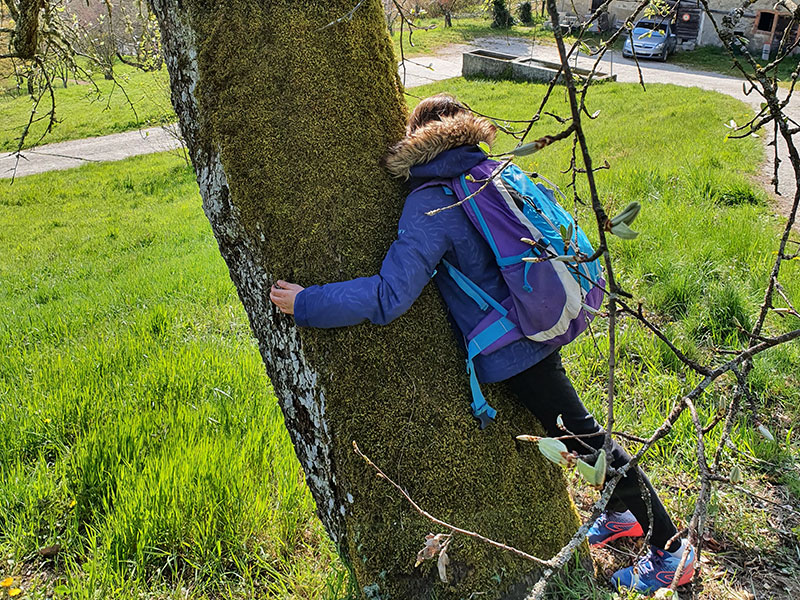
From digital to green spaces on World Nature Day.
When Chloé was 11, just like many girls of her age, she loved chatting with her friends on social media, spending time on TikTok and posting photos on Instagram, but recently she started to feel less motivated to do other things and even didn’t feel like going outside. She started to complain about the fact that she had put on weight and became quite negative with her family. She asked for help and her parents decided to register her in a coaching programme for kids. Three months after the beginning of the programme, Chloé totally transformed her mindset and found her happiness and motivation back. She learned to regulate her screen use, started to learn to play the piano and loves walking in nature which helped her lose the kilos that she complained about. At the end of the coaching programme, Chloé said: “Thanks to coaching, I manage to use my smartphone in a more responsible way now, I am more active and love spending time in nature. I also feel more motivated to learn new things. I also gain self-confidence and stop comparing myself with others. It really helped me to find a better balance in my life in general.”
On World Nature Day today, it is the occasion to talk about the importance of helping children find a balance between the digital world and nature. More and more children and teens refuse to spend time in nature because they prefer to stay inside, playing video games or being on social media. Since the introduction of the smartphones, the level of depression and anxiety has kept increasing among adolescents. This shows that excessive use of screens has a negative impact on their mental health.
One effective way to reduce the exposition to ongoing negativity and toxic influences, is to help children reconnect to nature. We are talking more and more about “nature deficit disorder” which means that many children develop behavioral problems related to a lack of exposure to nature.
The benefits of a natural environment on children are many:
Spending time in nature improves academic performance: several studies
have shown that children who regularly spend time in green spaces have
better performance in reading, writing, math, and science.
We also observe that nature promotes creativity, critical thinking and problem solving.
Time spent in nature also improves children’s attention and focus, and children with attention deficit hyperactivity disorder (ADHD) have a clear decrease of
symptoms when they regularly spend time in green spaces.
Nature also has an impact on motivation. The exploration in nature, the discoveries that children make by themselves contribute to their desire to learn. Their enthusiasm and joy increase tenfold.
Nature has positive effects on stress and anger which enhance social relationships and emotional control. Kids who often play outdoors are happier and less aggressive than the ones who spend most of their free time inside.
Therefore, encouraging children to spend time in a natural environment and showing gratitude towards the beauty of nature is the best way to help them develop their connection to nature. Making it a habit to go outside everyday and be active is a remedy against today’s hyperconnectivity which drains the energy and happiness of our children.
Aurélie Andriamialison
Coach de vie pour enfants